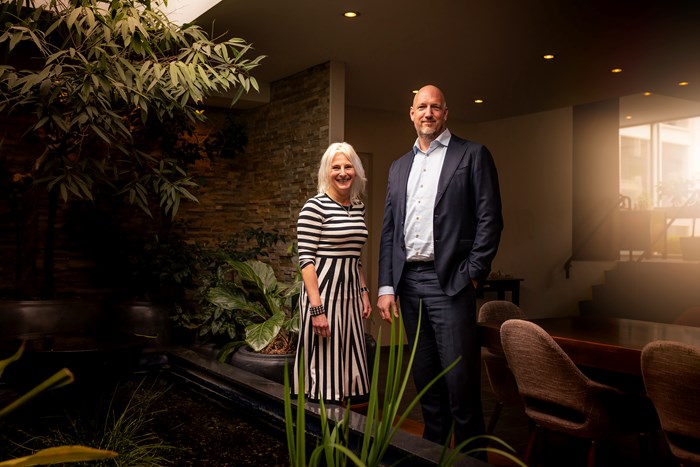
New Leadership at U-center: Bouke Schuurmans and Rosy Ghijsens form the new executive team
U-center welcomes a new executive team that unites expertise with experience. With Bouke Schuurmans as General Director and Rosy Ghijsens as Director of Care, the organization gains two committed leaders at the helm. Their appointment marks a new chapter for U-center, one focused on continuity and professional reinforcement. Both have longstanding ties to the organization and share a clear mission: to sustainably strengthen U-center and elevate the quality of care to even greater heights.
A familiar vision, a new role
Bouke Schuurmans officially took office on March 1 and immediately emphasized how naturally U-center’s concept resonates with him. “The small scale, the holistic treatment philosophy, and the combination of care and entrepreneurship make this a logical step for me. There is still so much room to grow—both in terms of treatment content and in broadening our target groups, for instance by developing programs aimed at employers.”
He sees opportunities to further expand U-center’s care offerings: “Our approach is intensive and short-term. That works well for individuals in demanding professions—think police, firefighters, or defense personnel—but also within large organizations, where psychological strain often remains under the radar.”
Dual leadership: balancing content and operations
Rosy Ghijsens, psychiatrist and psychotherapist, will assume her role as Director of Care on May 1. She will be responsible for the organization’s treatment programs. “I come from a background where transformative, intensive therapy is central. That depth, that connection with teams and clients—that’s what energizes me. And that’s exactly what U-center offers.”
The duo sees their dual leadership not as a division of roles, but as a synergy. “We shape the direction of the organization together, from two complementary perspectives,” says Ghijsens. “This brings more than just stability at the executive level—it enables greater focus and depth in both operations and treatment content.”
Stability and deep professional roots
In recent years, U-center has faced a high turnover in staff, leading to organizational instability. Schuurmans is candid about this: “Turbulence at the top inevitably affects the workplace. The only way to regain trust is through clarity, presence, and a shared perspective.”
For Ghijsens, now is the time for a steady course: “People need to know what they can count on. We’re already seeing how much it means to have a consistent point of contact for treatment matters. As Director of Care, I’m not only ultimately responsible—I’m actively involved with the teams and the treatment programs. That makes conversations about quality more direct and more constructive.”
Professionalization without losing connection
The new leaders are committed to creating space for professional ownership. “We don’t want a top-down model,” says Schuurmans, “but we do want a professional structure where therapists know their roles—and how their work contributes to the broader mission.”
That also means raising expectations, adds Ghijsens: “We expect people to want to grow, to help build. That requires a different way of looking at your work—with attention not only to your expertise, but also to the organization as a whole.”
A call to the profession
U-center treats individuals with complex, often multiple mental health issues. The treatment period is short but intensive: a six-week residential program set in a purposefully designed healing environment, with a strong focus on hospitality and interdisciplinary collaboration. “The challenge lies in the depth you must achieve in a short time,” says Ghijsens. “That requires passionate professionals committed to real change.”
Both directors are clear about their commitment to U-center for the long term. “We’re looking for colleagues who share that commitment—who recognize themselves in the biopsychosocial model, and in our ambition to continue delivering the highest level of care,” concludes Schuurmans.


